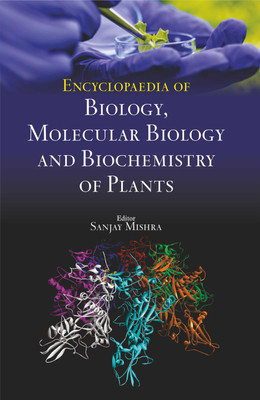Encyclopaedia of Biology, Molecular Biology and Biochemistry of Plants (3 Vols) - Biology, Molecular Biology and Biochemistry of Plants with 3 Disc(Hardcover, Sanjay Mishra)
Quick Overview
Product Price Comparison
Modern plant science research currently integrates biochemistry and molecular biology. The increased knowledge about the structure of genomes in a number of species, about the complexity of transcriptomes, and the rapid growth in knowledge about mutant phenotypes have set off the large scale use of transgenes to answer basic biological questions, and to generate new crops and novel products. The list of simple elements of which plants are primarily constructedŌĆöcarbon, oxygen, hydrogen, calcium, phosphorus, etc.ŌĆöis not different from similar lists for animals, fungi, or even bacteria. The fundamental atomic components of plants are the same as for all life; only the details of the way in which they are assembled differs. Despite this underlying similarity, plants produce a vast array of chemical compounds with unusual properties which they use to cope with their environment. Pigments are used by plants to absorb or detect light, and are extracted by humans for use in dyes. Other plant products may be used for the manufacture of commercially important rubber or biofuel. Perhaps the most celebrated compounds from plants are those with pharmacological activity, such as salicylic acid (aspirin), morphine, and digitalis. Drug companies spend billions of dollars each year researching plant compounds for potential medicinal benefits. The book is a meticulously organized and useful both for teaching and for reference. It is intended to serve plant biology and related disciplines, ranging from molecular biology and biotechnology to biochemistry.


